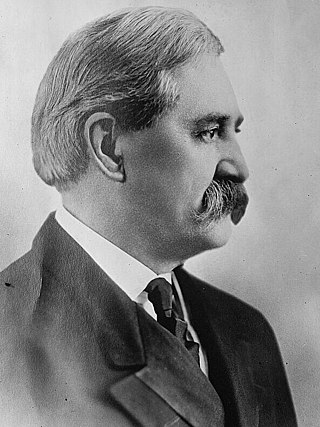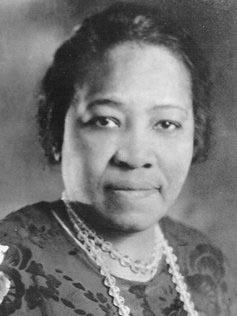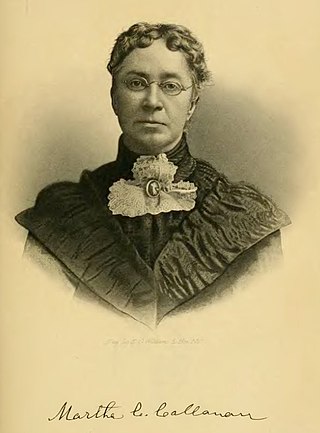
Albert Baird Cummins was an American lawyer and politician. He was the 18th governor of Iowa, elected to three consecutive terms and U.S. senator for Iowa, serving for 18 years. Cummins was a leader of the Progressive movement in Washington and Iowa. He fought to break up monopolies. Cummins' successes included establishing the direct primary to allow voters to select candidates instead of bosses; outlawing free railroad passes for politicians; imposing a two-cent street railway maximum fare; and abolishing corporate campaign contributions. He tried, with less success, to lower the high protective tariff in Washington.

Carrie Chapman Catt was an American women's suffrage leader who campaigned for the Nineteenth Amendment to the United States Constitution, which gave U.S. women the right to vote in 1920. Catt served as president of the National American Woman Suffrage Association from 1900 to 1904 and 1915 to 1920. She founded the League of Women Voters in 1920 and the International Woman Suffrage Alliance in 1904, which was later named International Alliance of Women. She "led an army of voteless women in 1919 to pressure Congress to pass the constitutional amendment giving them the right to vote and convinced state legislatures to ratify it in 1920" and "was one of the best-known women in the United States in the first half of the twentieth century and was on all lists of famous American women."

Sarah "Annie" Turner Wittenmyer was an American social reformer, relief worker, and writer. She served as the first President of the Women's Christian Temperance Union from 1874 to 1879. The Iowa Soldiers' Orphans' Home was renamed the Annie Wittenmyer Home in 1949 in her honor.

Louise Frankel Rosenfield Noun was a feminist, social activist, philanthropist, and civil libertarian.

Mary Jane (Whitely) Coggeshall was an American suffragist known as the "mother of woman suffrage in Iowa". She was inducted into the Iowa Women's Hall of Fame in 1990.

Ida Sedgwick Proper was an American suffragist, writer and artist. She was an art editor for The Woman Voter. Proper has work in the permanent collections of the Smithsonian, and the Des Moines Art Center.

Victoria Clay Haley, later Victoria Clay Roland, was an American suffragist, clubwoman, bank executive, and fundraiser based in St. Louis, Missouri and later in Chicago.

Elizabeth Morrison Harbert was a 19th-century American author, lecturer, reformer and philanthropist from Indiana. She was the first women to design a woman's plank and secure its adoption by a major political party in a U.S. state.

Woodland Cemetery is the oldest cemetery in Des Moines, Iowa, having been established in 1848, before Des Moines was the state capital. It is a municipal cemetery owned and operated by the Des Moines Parks and Recreation Department. It covers 69 acres (28 ha) at the corner of 20th Street and Woodland Ave and is the site of over 80,000 graves.

The Iowa Federation of Colored Women's Clubs (IFCWC) was an umbrella organization serving African-American women's clubs in Iowa. The motto of IFCWC was "Sowing Seeds of Kindness", and the organization was affiliated with the National Association of Colored Women. The club produced a journal called the Iowa Colored Woman. IFCWC sent delegates to represent the state at national conventions and opportunities such as "Colored Women's day" at the 1939 New York World's Fair. The IFCWC is also known for creating a black women's dormitory for the University of Iowa before the school was fully integrated. The building has been listed on the National Register of Historic Places.

Annie Nowlin Savery was an American suffragist and philanthropist based in Des Moines, Iowa. She is known as a pioneer feminist and activist for woman suffrage. She began taking part in the woman suffrage movement in the 1860s, and became a leader in the county and state, speaking widely and helping establish organizations to support it.

Ella Hamilton Durley was an American educator, newspaper editor, and journalist. She was also a peace activist and supported woman's suffrage. Durley did noteworthy work on the Saturday Mail, a Des Moines weekly publication, but her professional life was mainly given to the Des Moines Daily News, of which her husband, Preston B. Durley and her brother, John J. Hamilton, with herself, were the principal owners. Under the pen name of "Judith Jorgenson", she conducted a column of stories of real life, "Around the Evening Lamp", for many years, and it was considered especially creditable.
Nettie Sanford Chapin was a 19th-century American teacher, historian, author, newspaper publisher, suffragist, and activist. Chapin wrote mostly prose. She also wrote on Iowa history, and published several small books herself. While residing at Washington, D.C., for several winters, she wrote concerning society and fashionable Washington circles. In 1875, she began the publication of The Ladies Bureau, the first newspaper published west of Chicago by a woman. Chapin served as chair of the National Committee of the National Equal Rights Party.

The Des Moines Women's Club, founded in 1885 as the women's club movement swept through the United States, today serves the Des Moines community by providing scholarships, support for the local arts community, and other civic projects.

Sue M. Wilson Brown was an African-American activist for women's suffrage. She was inducted into the Iowa Women's Hall of Fame in 1995.
Simon Casady was a prominent banker in Iowa, best known for his role in organizing the Des Moines Bank, which later evolved into the Des Moines Savings Bank. Casady served as the president of the Des Moines Savings Bank and the Central State Bank, as well as the vice president of the Iowa National Bank and the treasurer of the Bankers Life Association. Casady has been referred to as "the dean of Iowa bankers" in news accounts. He was a member of the Casady family, an influential lineage of bankers, politicians, landowners, and farmers who played a significant role in the early history and legislative matters of Iowa.

Women's suffrage in Iowa efforts began early in Iowa's history. During the territory's Constitutional Convention, discussions on both African American and women's suffrage took place. Early on, women's rights were discussed in the state by women such as Amelia Bloomer and petitions for suffrage were sent to the Iowa state legislature. While African American men earned the right to vote in 1868, women from all backgrounds had to continue to agitate for enfranchisement. One of the first suffrage groups was formed in Dubuque in 1869. Not long after, a state suffrage convention was held in Mount Pleasant in 1870. Iowa suffragists focused on organizing and lobbying the state legislature. In 1894, women gained the right to vote on municipal bond and tax issues and also in school elections. These rights were immediately utilized by women who turned out in good numbers to vote on these issues. By the 1910s, the state legislature finally passed in successive sessions a women's suffrage amendment to the state constitution. This resulted in a voter referendum to be held on the issue on June 5, 1916. The campaign included anti-suffrage agitation from liquor interests who claimed that women's suffrage would cause higher taxes. The amendment was defeated, though a subsequent investigation turned up a large amount of fraud. However, the election could not be invalidated and women had to wait to vote. On July 2, 1919, Iowa became the tenth state to ratify the Nineteenth Amendment.

Martha Callanan was a woman's suffrage advocate, newspaper publisher and philanthropist. She was born in Albany County New York and moved to Des Moines, Iowa with her husband James C. Callanan in 1863 and her home soom became the unofficial headquarters for the local women's suffrage movement.

A. L. Frisbie was a pioneer minister at Plymouth Church, Des Moines, Iowa, from 1871 to 1899. After he retired he served as Pastor Emeritus for a total of 42 years of service. Martha Frisbie was a teacher and leader in the Iowa Congregational Church. Frisbie Park in Des Moines and the former Frisbie Public School were named for them. The Frisbies were active abolitionists and suffrage advocates in Des Moines. He shepherded Plymouth Congregational Church during years of growth and building. She was a teacher and a leader in women’s organizations. Her former students formed the Frisbie Club, a study club which still exists today.
Orchard Place is an agency based in Des Moines, Iowa which provides inpatient and outpatient mental and behavioral health services for youth. It is one of the oldest social service agencies in Des Moines which began as the Home for Friendless Children, an agency dedicated to finding foster or adopted homes for destitute or abandoned children. Today, Orchard Place is headquartered in the South Side of Des Moines and provides services at the Orchard Place Campus, the Child Guidance Center and the PACE center.

















